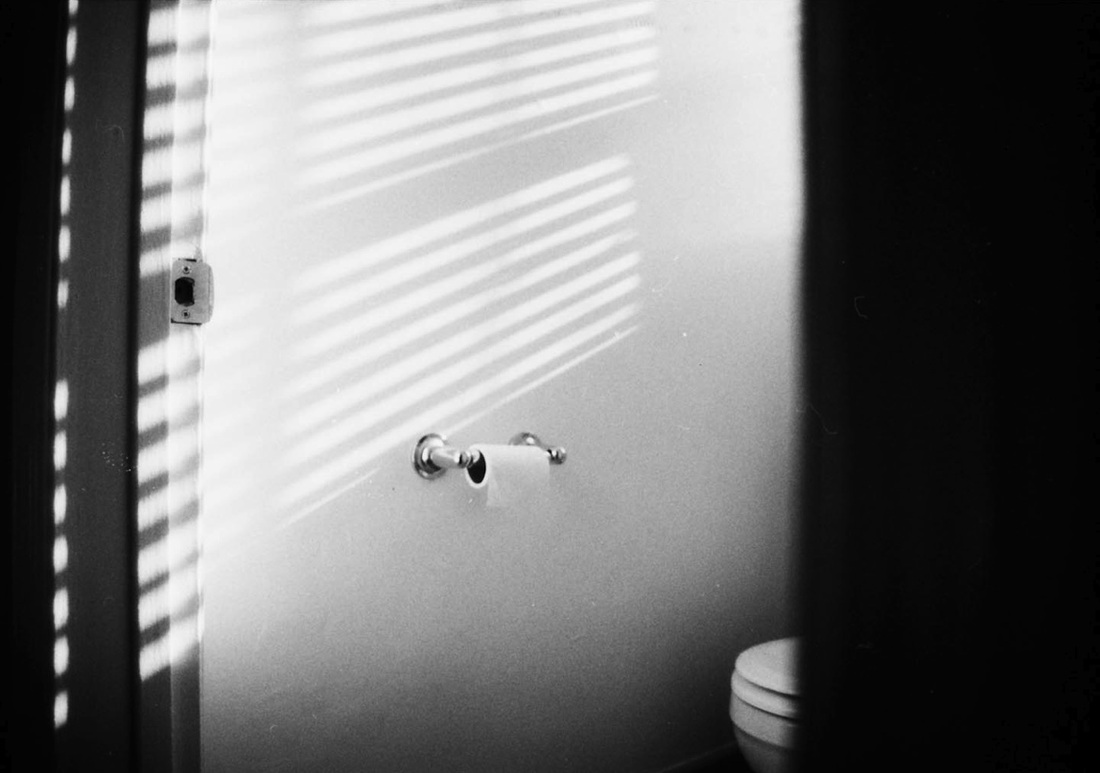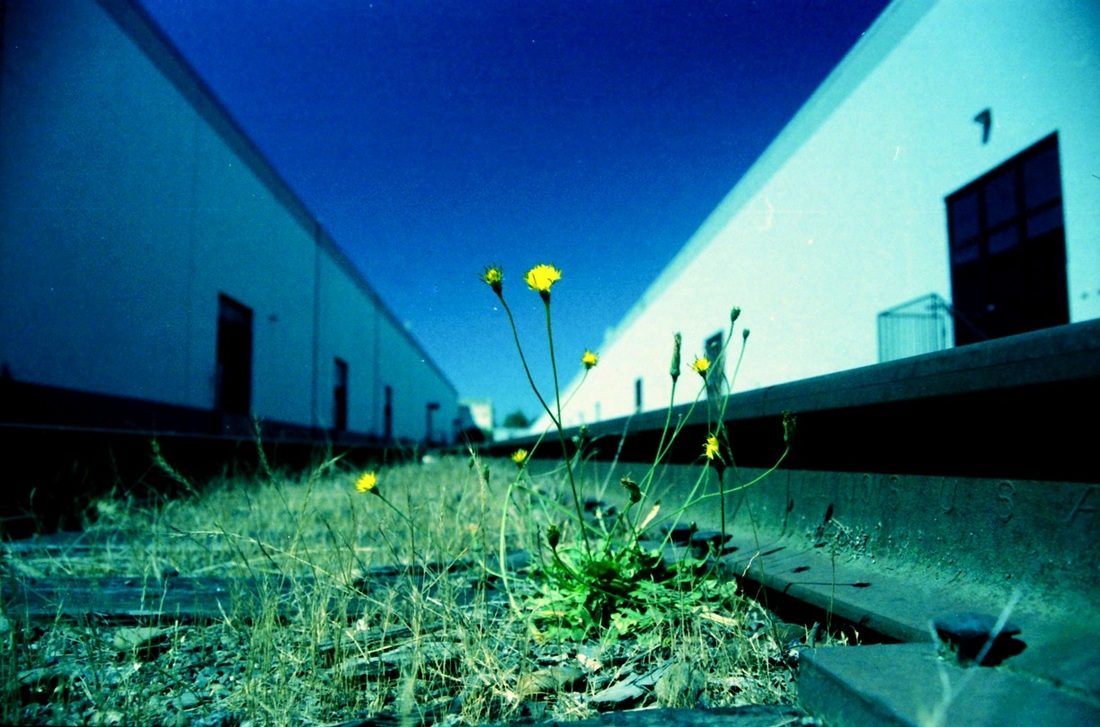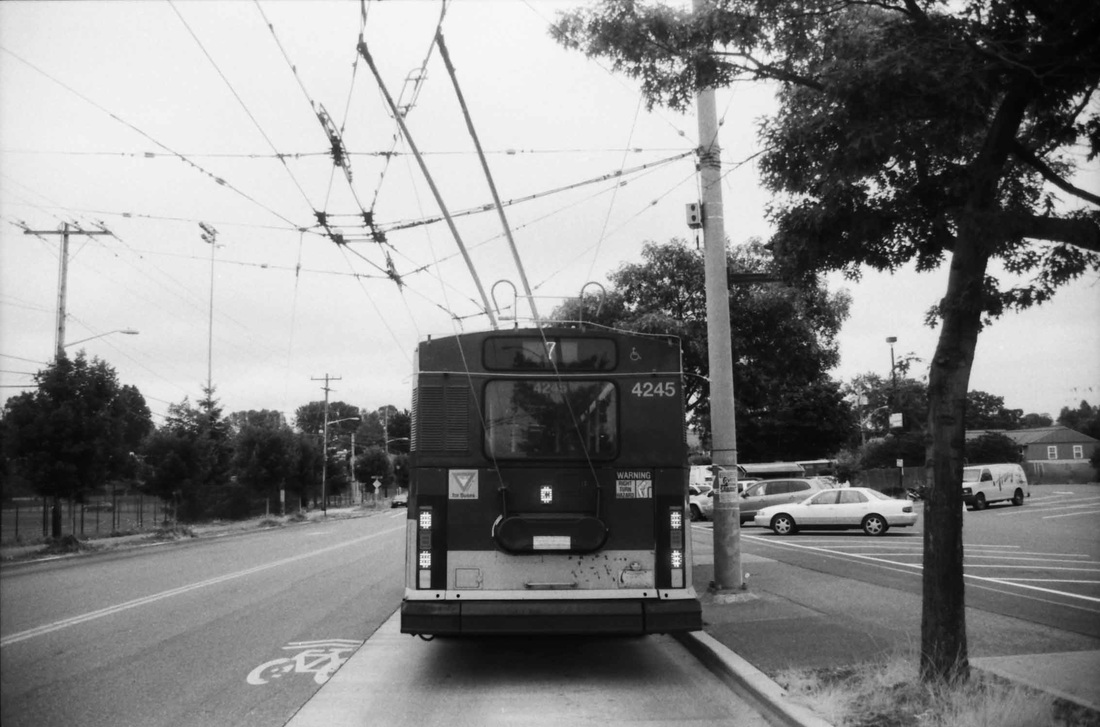|
You've probably heard by now of the now-famous sixty urine-soaked seats. In what ended up making national news, the Washington State Department of Labor and Industries fined Metro for one serious violation (not providing operators with unrestricted access to bathroom facilities when needed to relieve themselves, with specific attention to how bathrooms are often unavailable at night, not located at all route terminals, and with not enough time to access the bathroom if one is provided) and one general violation (no running water, soap, or paper towels for route 36 & 50 operators for over six years). The language employed in the (public) documentation is harsh ("Describe on the form how you corrected each hazard, rather than what you intend to do in the future.... If we do not receive written confirmation you have corrected the hazards, we will take follow-up action, which may include additional penalties. If you provide us with false information, you may face criminal penalties."), and I feel it is appropriate. As an operator, my bladder and my mind are immensely grateful to learn of this. When the King County Council ordered Metro to tighten the schedules in 2009, in response to economic pressures and as a result of a now highly-questioned performance audit, many staff knew the ramifications would be far reaching: more accidents, more unreliable service, a decline in customer service quality and maintenance, and more work-related injuries for operators. All of those have panned out– even down to more operators needing kidney stone operations because of accumulated lack of access to restrooms. I'm grateful that such badly-needed attention is finally being brought to bear on the issue. What I'd like to contribute regarding all this is a little further clarification on how you might end up with sixty urine-soaked driver seats. My frustration is not with Metro, but with certain folks' misunderstanding of the issue. I would think such a thing might be self-explanatory, but a quick listen to Mr. Dori Monson, the local talk radio personality, reveals that it isn't. I was directed to a recent show of his wherein he told Metro GM Kevin Desmond he couldn't fathom how such a thing could happen. Monson cited how he once successfully sat in traffic for two hours fighting the urge, and that forty-five minutes on a bus ought to be nothing. Mr. Monson concluded by saying that drivers who soil seats should be fired. I think the polite way to say this is that Edward R. Murrow isn't going to rise from the grave to shower Monson with praise for investigative journalism. Mr. Desmond, as someone who clearly cares passionately for transit, its users, and its operators, acquitted himself reasonably well on the issue, but both individuals– Mr. Monson in particular– would do well to further inform themselves on the issue prior to discussing it on air. Many routes are longer than forty-five minutes, and the breaks at the ends of those trips are regularly only five minutes– five scheduled minutes, that is. An eight-hour shift is required to have two fifteen minute breaks (drivers don't get lunch breaks), and all the rest are usually shorter. A real-world example: I drive a 97-minute 7/49 trip that needs to be that long, and needs more than the five minutes given at the end to balance out the very natural delays one will encounter over that time. Heaven help you if you get two red lights (three minutes), take a minute to answer someone's questions, or if there's someone inside the gas station bathroom at the end of the line. Weekend schedules are older, and my weekend runcards give me 60-75 minutes to drive what is actually 90 minutes in real life, but the breaks aren't any longer. The weekday and Sunday 49 terminal has a bathroom which closes at 10pm and 6pm, respectively, and the nearest reliable bathroom after that is six blocks away. The issue is not the length of the route (through-routes are convenient, fun to drive, and structurally very useful), but rather the unrealistic nature of the schedules themselves. When Scheduling writes runcards expecting you to get from 12th & Jackson to 5th & Jackson in two minutes, you just want to throw up your hands and invite them all out for a few honest-to-goodness, real-world, ground-level bus rides. Some bathrooms are too often out of order, overused, too far away, or plagued with drug use. The 70 is famous for having consecutive six minute breaks ever since 2009– one legendary ten-hour and forty minute piece has just two breaks longer than ten minutes (fifteen each, and one is your very first one, when you don't need it). The "no-pee" 24/124 has only a heavily drug-abused bathroom on one end, and a quarter-mile walk away on the other; the 11 has only one terminal, being a live loop, with a bathroom too far to reach in the allotted time, and which is closed after hours. And so on. In situations like this the operator is forced to make a decision between taking the time to care for his/her body, or receive the wrath of irked passengers who have been kept waiting. As Mr. Desmond has pointed out, this is not a decision one should have to make. My hope is that this comes across not as a rant, but as an explanation. I'm compelled to share these realities as a corrective to the information which you might encounter from less-informed outlets. If your 70 is late, complain to the King County Council, not Metro. If your driver is stressed, mind that (s)he might not have had a restroom in the last six hours. The important thing is that thanks to voters, there is now actually funding available with which to address the issue, and the service can be improved to the benefit of both riders and drivers. All of which is to say: Hooray!
4 Comments
"Good peoples, bro," a boy said, coming up at the end of his ride, offering a regular handshake. I've just let his brother ride for free.
"'Ppreciate it, foo," said another man, who had seen me being friendly with everyone. Then: "You're the coolest driver ever," an elderly drunk said, wriggling to life at Third and James. "We need more cool young people. Got enough o' these old farts." Later on he jumped off the lift while it was in motion. I raised my eyebrows, shrugging– too late to do anything about it– and said, "that's one way to do it!" The African-American man outside in sweatpants smiled as he watched. "Always a pleasure riding witchoo," he said later on. I waved at the wheelchairs on Yesler Way. There's always a few who bask in the sunshine outside what must be an assisted living complex; it's our version of the neighborhood folks on their porches, watching the 3:00 train go by. When I include stories of folks complimenting me on this blog, it's not because I wish to share that people like me. That's not important. What's important is that they are appreciating and taking part in the act of kindness. I think our sanity and livelihood depend on spreading this sort of goodwill, person by person. What else is there, really? Elders speak to me of 1968 as a time when the world stopped making sense. There used to be order, they'll tell me, referring to the sensibility of the fifties, the clear moral delineations of the wars of yore, the economic comfort pragmatically enjoyed by those who had struggled through the Depression and the Great War. Now there was an assassinated president, an assassinated civil rights leader, a war being fought for no reason, and now they're killing Bobby Kennedy... a fundamental trust was broken. The rules were being outmoded by invisible forces, with nothing replacing them. There was the deep, soul-crushing frustration in the idea of America as a failed enterprise. The thought that it had not worked and never will, and our concept of a just universe was slowly being beaten down. There is a similar weight in the air now. It is a humid, deep-clawing sadness which threatens us toward our worst impulses, and pushes us to consider only the worst of what we're shown. I would like to suggest that succumbing to this perspective will get us nowhere. The act of being fundamentally and simply good to each other has, incredibly, never lost its appeal. I find that amazing. It's part of why I'm moved to write about them. Such moments may not have much traction in the newsmedia or on television, but nevermind all that. I'm talking about the real world. When you're a young black man, and you hold the door open for an old white lady, you're not just holding the door. When you're a CEO and you ask how the cashier's weekend was, you're not just making small talk. When you greet the thug with an eyedrop tattoo as if he's just another friend of yours, you aren't simply saying hi. You're doing something else. You're helping them learn. People develop stereotypes when they have limited information. Primary, real-world experience supercedes secondary hearsay and assumption, and when you behave like the good person you have it in yourself to be, you're helping others reframe their understanding of what they think when they see someone like you. It requires very little effort on your part. You're just being nice. And yet with that minimal effort, you're accomplishing more in their headspace than if you shoved them against the wall and lectured them for three hours. A friend of mine who happens to be a black male teenager recently told me how much he enjoys this approach. He wants people to know that black culture is much bigger than hip-hop culture. He's considerate and well-spoken to his customers at work, as he always is, and when they come back later to share how much they enjoy his attitude, that they've never met another young man like him, that they're clearly surprised, he's not offended. He's happy. He's helping them expand their minds, he says. He's accomplished something. I would ask that we follow in this young man's lead, that we might gently transform the world into a place where Mr. Garner, Mr. Rice and others could have grown and thrived. Don't try to change the world. Change the person next to you. You do that by being yourself. That's how you change the world. Be that kid who says thank you. Be the older person who by breaking a silence reveals their non-judgment. Think before you cross to the empty side of the street– is it really necessary, or am I doing this because of all those crime shows I've watched? Are you a police officer or other authority figure? You have a golden opportunity. Be that cop who's fair and human. Interact with a lot of people. You're helping change minds, bit by bit. Pull over a few Lexuses and Range Rovers. People notice things like that. Two (white) sheriffs recently woke a passed-out (black) man on my bus. They politely asked him where he wanted him to go, and pointed him in the right direction, actually walking with him for part of the way. One of them asked how he was feeling. "Wow, they're really nice," I said to the supervisor on scene, who was also watching. "Yeah!" "Man, I love seeing that!" I try to avoid turning this blog into a soapbox, and for that reason it's rarely topical in the "breaking news" sense, but I'm compelled to address an issue a number of people have been asking me, and which you may be curious about.
Because I drive the "black" bus, people want to know how folks onboard are reacting to the Ferguson decision. There aren't any white passengers on the 7 during most of the hours I drive it; what's the general angle of conversation on the subject, in this, the most educated city in the US?* Heuristic evidence tells me the general angle is perhaps not the outrage the media reportage of protests might wish us to think. The general angle I get is that of thoughtful consideration. Just about everyone I've listened to has been able to read past the headline and understand that the Grand Jury's decision is in fact not a legal license to kill black people or a desecration of all that America is supposed to stand for– yes, those were my initial knee-jerk responses– but rather an acknowledgement of a complex situation with multiple ambiguities and moving parts. While what look like bored clumps of white teenagers** wander around outside in the street, "protesting," blocking nothing at night except blue-collar folk wishing to go home, my passengers of color look on in either amusement or mild frustration. They turn to myself and each other and ponder the shooting. An ex-military man with experience in high-pressure situations noted that such circumstances have half-lives not of weeks or months, but of seconds. Death is larger than race, and you don't think when you're in situations like that. You react. Then there is the question of conflicting testimonies. Did Mr. Brown turn around? Was he running forward? What about his friend, Mr. Johnson? "Why you agreein' wit' the Man," one man asked when the other mentioned these ambiguities. "It ain't about that. It's about it's more than meets the eye. Only people knows what happened, is Darren Wilson, and Michael Brown. Period end of story." Snatches overheard: "And anotha thing. Police officers need to worry about whether oh not they gon' make it home every night. You always gonna err on the side of protectin' yo self. Are there kids out here who are dangerous? Uh, yeah! That don't mean it ain't no tragedy. But don't tell me...." A friend of mine, looking out the window: "What the fuck are these assholes doing? The Grand Jury has already made their decision. There ain't no, fuckin, what I don't understand is, where was all these people before motherfuckers made the announcement? Where was the protesters then? When it was back in the day, Martin Luther King and shit marchin' on Washington, those motherfuckers was out there before, during, and after. These are just lazy sons a bitches blockin' regular motherfuckers tryin' to get they ass home. Iss the middle of the fuckin' night. What these guys think they gon' do? The Grand Jury gonna say, oh yeah, we're sorry, we made a.... Yeah, it was a shitty decision, I agree. But I don't think blockin' a bus or a train in Seattle is gonna make the Grand Jury in Missouri... oh, man. It pisses me off so much." A woman on her way to St. Mark's summed it up best: "They tryin' uh get everybody to riot. But they ain't goin' to. That police officer was scared. This ain't no Rodney King." Less mayhem, more thinking, breathing, and talking. Ah, yes. Boring for the news networks, and just fantastic for everyone else. -- *Regarding education levels in Seattle: read more from Fast Company, The Washington Post and Brookings Institution, and CNN. **Toward whom I sympathize with, mean no disrespect, and among whom I count several friends. I marched in the police brutality protests during the John Williams episode, but this is different. Plus the ineffectual late-night aspect of the current protests encourages me to poke gentle fun. EDIT: I'm compelled to add that this all transpired pre-Eric Garner. Folks who were considerate beforehand might justifiably be less forgiving now. |
Nathan
Archives
July 2024
Categories |



 RSS Feed
RSS Feed
